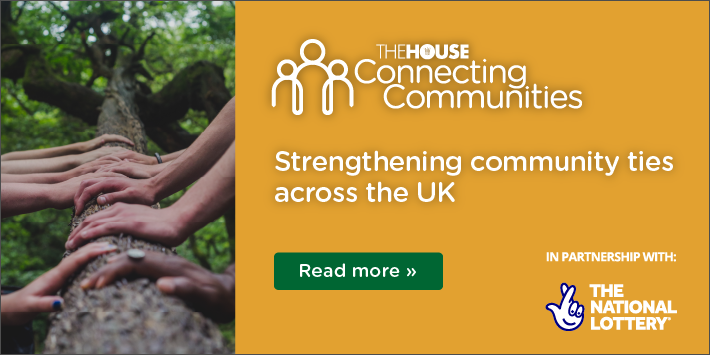Maternal mental health matters: how can we ensure adequate action is taken?
4 min read
For many women lockdown has exacerbated some of the most difficult aspects of motherhood.
That’s why I worked with the House of Commons to run a survey asking for new and expectant mothers to share their experiences during the pandemic. Over 11,000 people responded. The feedback was at once illuminating and unsurprising.
The overwhelming theme of the responses spoke to just how difficult isolation has made the experience of giving birth and caring for a new-born. Zilia from the South East wrote: “All appointments attended alone and in sterile conditions, childbirth alone, no visitors in hospital, no family able to meet your new-born and help you out thereafter. Just the most isolating and lonely experience I’ve ever been through.”
Other Covid-19 factors have worsened the experience for new mothers. The industries worst hit by lockdown are often female led. 20 per cent of mothers have lost their jobs during the pandemic, compared to just 13 per cent of fathers. The closure of schools has left many mothers trying to juggle home schooling with looking after a new-born.
Not only has the pandemic disproportionately impacted women in their professional lives, the restrictions we’ve been living under have severely limited our access to healthcare. As resources are prioritised towards emergency admissions, this has led to an increase in the use of digital and telephone consultations in perinatal care.
My own mother was a health visitor for many years, so from a young age I became aware of just how significant a friendly knock on the door could be to an overwhelmed new mother. A trained and experienced health visitor can observe mother and baby and identify whether additional support is needed. It is a kind of support that is vital for new mothers in the first weeks and one that simply cannot be replicated on Zoom or over the phone.
The Maternal Mental Health Alliance and Centre for Mental Health recently ran a survey into the impact of Covid-19 on maternal mental health services in the voluntary and community sector (VCS) organisations. The results highlighted a decrease in the statutory services that available as a result of the redeployment of health visitors and disruption amongst GPs and midwives. VCSs are now having to fill these gaps, creating yet more pressure on already stretched capacity.
So, what can be done? The first step has to be addressing these shortfalls in provisional capacity. We cannot expect quality service provision when health visitors are spread so thin. The pandemic notwithstanding, this was a service already chronically underfunded, with the health visiting workforce having seen a 31 per cent decrease since 2015.
The Government has recently announced a £1 billion catch-up fund for older children who have missed out on valuable education. I believe a similar catch-up fund is needed to ensure access to formal and informal sources of support for new parents. These kinds of provisions are so important during the first few months of parenting. The First 1001 Days Movement, who I am working with on the issue of maternal mental health, believe a more holistic view of recovery is needed. That is, one which recognises the importance of catching young children up beyond purely academic terms.
The long-term societal cost of perinatal mental ill health is estimated at £8.1billion annually for each one-year cohort of births. About three quarters of this cost is the cost of the impact on the child. The financial value of early interventions to support struggling families is clear, but there is also a very human value of building loving and supportive families.
The Government must therefore fund and resource home visits by health visitors to all new mothers so that we can properly address the issue of maternal mental health. It must ensure that digital consultations do not become the norm and make available whatever financial backing our midwives require to do their job effectively. The time for rhetoric has long gone. Only action will now suffice.
We have the structures and the mechanism to provide this support already through the health visiting service, but unless the Government commits to it the funding it needs, we are failing future mothers and restricting the care they are able to provide to their new-borns. Poor perinatal mental health is a very real problem and one that urgently needs addressing. The Government must act now.

